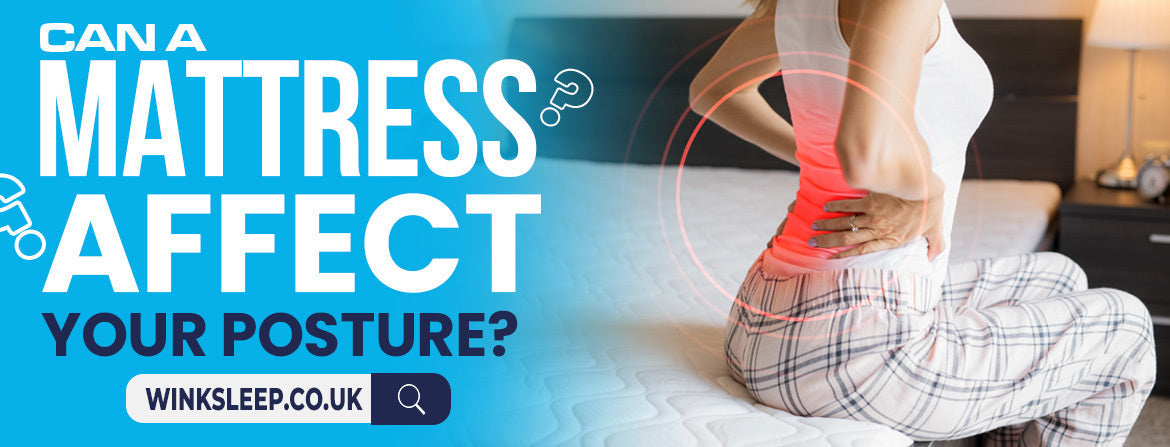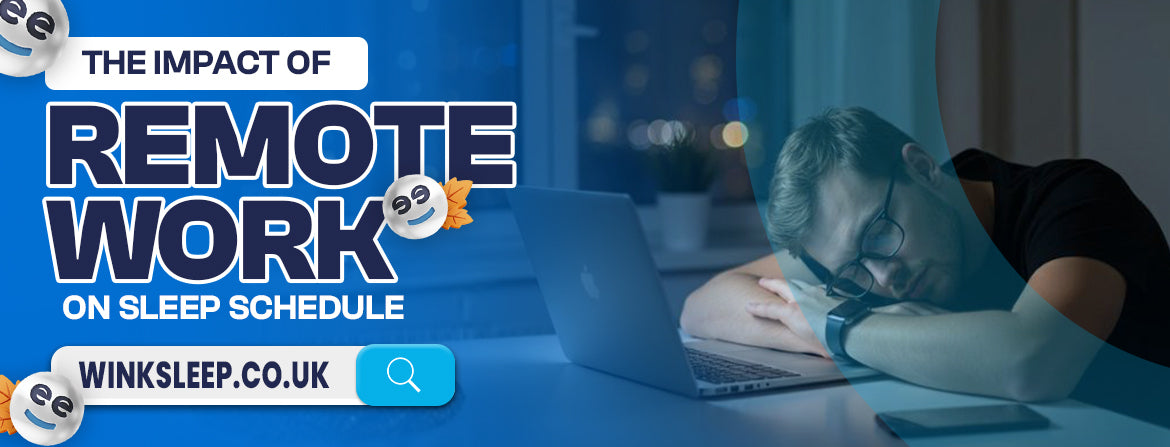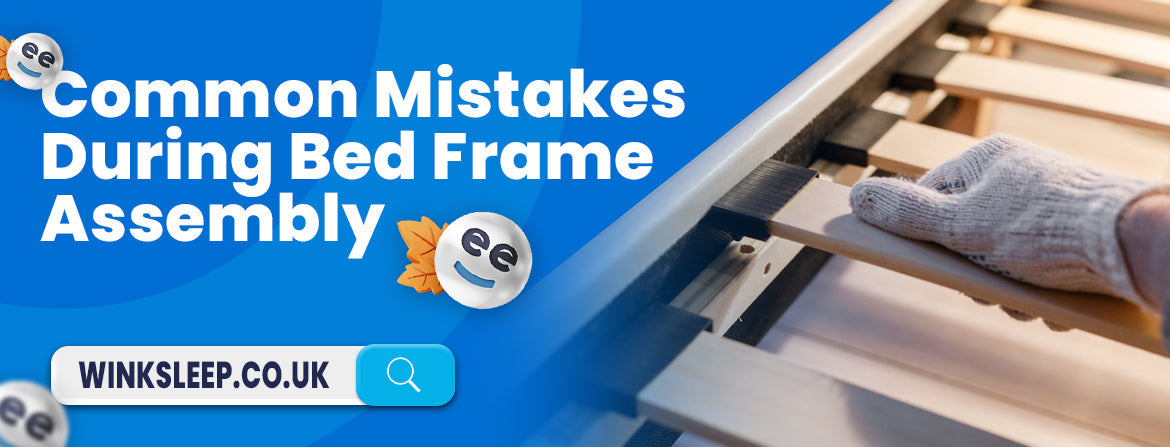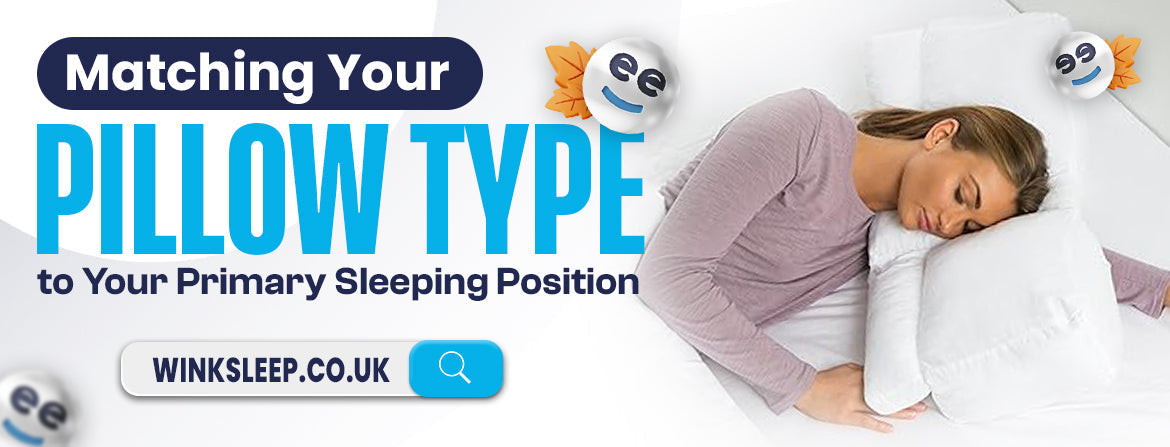Do you ever wonder why you wake up with a sore back or stiff neck? Or why do you find yourself slouching more during the day, even when you try to sit up straight?
Most people don't think about their mattress affecting how they stand, sit, or walk during the day.
But here's the thing: you spend about 8 hours every night on your mattress. But once you understand the link between your mattress and your posture, you can make changes for better sleep and a straighter back.
Let’s discuss how your mattress influences your posture and what steps you can take.
Posture and Spinal Health
Good posture means your body is correctly aligned. Imagine a straight line going from your head, through your shoulders, and down to your hips – that's good posture. It helps keep everything balanced.
Your spine isn't straight like a stick – it has natural curves that look like a gentle ‘S’ shape when viewed from the side. These curves are important because they help your body absorb shock and distribute weight evenly.
When you maintain good posture, your body's natural curves are properly aligned. This means your muscles don't have to overwork, and your joints aren't strained.
When you have poor posture, like slouching or leaning, your spine's natural curves get out of alignment. Some parts become too straight, and others too curved. This puts stress on your muscles, joints, and the cushions between your backbones.
Signs Your Mattress is Affecting Your Posture
Your mattress matters a lot regarding your sleep. A mattress that hurts your posture will send you signals. You may notice some right away when you get up and others throughout the day.
- Morning Stiffness and Back Pain: If you wake up feeling stiff, sore, or achy – especially in your back, neck, or shoulders – your mattress might not be supporting you properly.
- Waking Up in Strange Positions: Do you ever go to sleep in one position, like on your back, but then wake up in a completely different one, like curled up? If your mattress isn't comfortable, you'll likely toss and turn a lot more as you try to find a better spot.
- Getting Worse Posture During the Day: Do you slouch a lot, or do people often tell you to stand up straight? Your sleeping position may be causing you to slouch. Bad sleep support can make your muscles tired, so it's harder to stand tall.
-
Muscle Tension and Knots: If you're getting more knots in your shoulders, neck, or back, or if your muscles feel tight and tense, your mattress might be forcing your body into uncomfortable positions. Your muscles shouldn't have to fight your mattress all night long.
Mattress Types and Their Posture Impact
Mattresses aren't all the same when it comes to keeping your back straight. Different kinds of mattresses support your spine in different ways. Let’s have a look:
Innerspring Mattresses
These are your classic bouncy mattresses with springs inside. They offer good airflow, so you don't get too hot. But the springs can sometimes push back too hard on your hips and shoulders.
Hybrid Mattresses
They have springs for support (like innerspring) and foam layers for comfort. This combination offers a good balance of both, which makes it a popular choice among many people.
Latex Mattresses
Made from natural latex, these mattresses are supportive but not too hard. They respond quickly to your movements and spring back into shape, which helps keep your spine straight all night long.
Adjustable Beds
These are special beds that let you raise or lower different parts, like your head or feet. This is great for finding the most comfortable position for your body, especially if you have back pain or specific posture issues.
How To Choose The Right Mattress For Your Posture?
Now that you know how different mattresses can affect your posture, how do you pick the right one? Here are the key things to think about when shopping for a posture-friendly mattress:
Know Your Sleep Position
Side sleepers need softer mattresses to cushion their hips and shoulders, back sleepers do well with medium-firm support, and stomach sleepers need firmer mattresses to prevent their hips from sinking too low.
Your Weight Matters
Heavier people usually need a firmer mattress to get enough support. Lighter people often find medium or softer mattresses more comfortable and supportive.
Test the Firmness
Most people do well with a medium-firm mattress. The goal is for the mattress to support you without feeling too hard or too soft. You shouldn't sink in too much, but you also shouldn't feel like you're on a board.
Protect Your Pressure Points
A good mattress will ease pressure on spots like your hips and shoulders while still keeping your spine straight.
Don't Forget Your Pillow!
Your pillow and mattress work together to support your head and neck. Make sure your pillow keeps your neck in line with your spine.
When to Replace Your Mattress?
Even the best mattress won't last forever; it'll eventually get uncomfortable and stop supporting your back. Here are the clear signs that it's time for a replacement.
Your Mattress is 7-10 Years Old: If your mattress is 7 to 10 years old, it's likely time for a new one. Mattresses generally start to lose their support after 7 or 8 years, and even good-quality ones usually need replacing by the time they're 10 years old.
You Wake Up More Tired Than Before: If you used to sleep well on your mattress but now wake up feeling unrested, stiff, or sore, your mattress has probably lost its ability to support you properly.
Your Allergies Are Getting Worse: Are your allergies acting up more at night, or is it harder to breathe when you're in bed? Your old mattress could be to blame. Mattresses collect a lot of dust mites, dead skin, and other things that can trigger allergies over time.
You may also like to read: Best Mattress for Elderly People
Final Thoughts
Your mattress has a huge impact on your posture every day. The eight hours you spend sleeping can either keep your spine healthy and straight or cause issues that affect you all day long. If you're struggling with back pain, bad posture, or morning stiffness, your mattress could be the surprising reason why. It's a good idea to check out your sleep situation.
 Build Your Bed
Build Your Bed
 Request FREE Swatches
Request FREE Swatches
 Fast Delivery on Every Product
Fast Delivery on Every Product  Klarna 0% Finance
Klarna 0% Finance  5 Year Manufacturer's Guarantee
5 Year Manufacturer's Guarantee 










